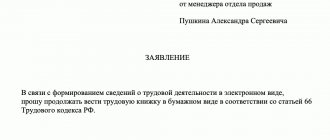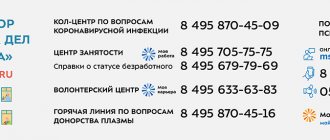Russian legislation guarantees that all citizens are provided with the same rights and opportunities. Thanks to this, everyone, including people with disabilities, is able to realize themselves in the workforce.
Today there are government programs aimed at adapting people with disabilities to working life. The topic of employment is relevant for disabled people of both groups II and III. The degree of limitation of physical and mental abilities determines whether they are capable of working.
One should not ignore the fact that absolutely all disabled people are provided with state assistance, including financial assistance. It is expressed in various types of compensation and disability pensions. But the amount of financial assistance is very modest, which forces people with disabilities to look for work. In this situation, information about the restrictions for this category of citizens, responsibilities and rights, and the ability to work with group 2 disability will not be superfluous.
Group II, to whom it is assigned
According to the law of the Russian Federation, people with permanent disorders of the functional characteristics of the body acquired as a result of diseases or injuries are recognized as disabled. People in need of social guarantees and rehabilitation are awarded disability of the 2nd group.
When an examination reveals a moderate degree of the disease, the person being examined by a medical and social examination (MSE) is assigned a disability of the 2nd group. Such deviations are considered:
- Sensory disorders due to dysfunction of the sense organs.
- Disorders of the functional characteristics of the body, resulting in physical disability.
- Mental disorders.
- Malfunctions in the circulatory system, as well as the respiratory system.
- Speech deviations caused by stuttering and voice formation.
Disability of the 2nd group is assigned for 1 year; after the period expires, in order to establish the state of health, compatriots are examined every year.
At the ITU bureau, the applicant is issued a certificate indicating the disability group and a resolution on whether the citizen is able to work. Applicants who have received a work permit without contraindications receive, as a supplement, an IPR (individual rehabilitation program), which indicates their wishes for organizing work activities.
List of diseases of 2nd disability group
According to the law, disability is diagnosed if there are moderate disorders of the body systems.
These violations include:
- Movement in space is impossible without someone's help and support. Movement without support occurs with loss of balance. It is not possible to use public transport. The presence of such a disorder indicates that the citizen needs some assistance in moving.
- Impaired ability to navigate indicates that without some support, a citizen cannot adequately perceive the situation around him, the time and place of action.
- Impaired ability to communicate means that when interacting with other people, as well as exchanging information, a citizen cannot do without outside help.
- There are also restrictions on training. This means that a disabled person of the second group can receive and assimilate new information, learn something new only in a specialized institution. Studying at home and using additional technical means is acceptable.
- A restriction on work activity indicates that a citizen can take part in it if there are special conditions for the possible use of technical means. Such citizens can carry out their work activities on the condition that others will help as needed.
Disabled people of the second group are those who suffer from the following diseases:
- Problems with mental functioning.
- Speech problems. It could be stuttering or problems with voice production.
- Visual impairment or tactile sensitivity.
- Respiratory and circulatory disorders.
- Violations of physical proportions. For example, deformation of the head or other parts of the body.
Are there obligations for disabled people of group 2?
People originally from the “Soviet Union” probably remember the time when every able-bodied citizen of the USSR was obliged to work for the benefit of society and the state. This responsibility was assigned to everyone, including people with “working” disabilities. How are things going in this regard at present? Are citizens with disabilities required to work? Is it possible to infringe on the rights of a non-working person?
According to Russian legislation, group 2 is recognized as working group. Such fellow citizens can work, but are not legally required to do so. At the state level, social assistance is provided for disabled people. A disability pension and monthly benefits from the Pension Fund are paid, and there are benefits for travel on public transport and sanatorium-resort treatment, and the purchase of medications. In some constituent entities of the Russian Federation at the regional level, if the level of family income is insufficient, subsidies are provided to pay for utilities.
It is indisputable that the amount of government support is minimal and does not allow maintaining an acceptable standard of living. Often, citizens with disabilities want to get a job, but they are not embarrassed that they will lose some government benefits and obligations.
Right to work
According to current legislative norms, disabled people are granted the right to work . The law guarantees that citizens with disabilities will be provided with support and personal working conditions. Russian legislation and current regulations regarding disabled people working according to standard rules guarantee additional conditions. State benefits are also provided for admission to certain educational institutions.
In order for disabled people to be competitive in the workforce, employers were required to create a quota for the employment of compatriots with disabilities.
Firms with more than 35 employees were required to sign employment agreements with disabled citizens and provide working conditions that meet ITU recommendations . At the same time, employers must submit data on the availability of vacancies for citizens with disabilities to the Employment Center every month.
What does it take to be able to find a job with group 2 disabilities?
The question that constantly arises is whether they are required to provide applicants with documentation of their disability to their employer. Based on Article 65 of the Labor Code of the Russian Federation, you will need to provide the following package of documents:
- Employment history. Provided in cases where the main employment contract is concluded with the applicant and he already has work experience.
- Passport.
- SNILS.
- Certificate of education. Necessary in cases where professional skills are needed.
- Military ID. Provided by people liable for military service.
In accordance with Russian legislation, the applicant does not need to provide any other documents to the employer, but he has the right to provide documentation confirming the disability group.
How to get
Registration of disability is carried out in accordance with the established procedure and requires compliance with certain rules.
It is necessary to collect a special package of documents:
- certificate confirming health impairment;
- a certificate of the extent of violations;
- the state of the citizen’s compensatory capabilities;
- documents on previously carried out rehabilitation activities.
Where to contact
In order to undergo a medical and social expert commission, you need to contact your general practitioner, who will document the health condition and issue a referral to a specialist. If a referral is refused, a citizen has the right to contact a social service agency. protection. If they refuse, the person has the right to independently contact the ITU Bureau.
All applicants for a degree of disability undergo a comprehensive examination in a hospital, after which a medical and social examination is assigned.
For an inpatient examination you will need:
- Statement.
- Original passport.
- A copy of the work book.
- Certificate of income.
- Outpatient card.
- Characteristics from the place of work or study.
- An act of injury or illness.
Medical and social examination
Conducted at one of the institutions conducting ITU. The commission, having studied the specifics of the disease, issues a conclusion and instructions on the characteristics of labor opportunities.
The examination consists of the following stages:
- Examination of the applicant.
- Study of everyday and social living conditions.
- Study of labor opportunities.
- Analysis of psychological characteristics.
Rehabilitation card
The commission draws up a card of the individual rehabilitation program.
When developing you need:
- Conduct rehabilitation diagnostics.
- Assess rehabilitation potential.
- Determine activities and technical means that allow a person to restore lost skills.
The IPR card is created in two copies: the first is issued to a person with a disability, and the second is attached to the act of medical and social examination of the citizen.
Indefinite registration
Disability group 2 and what diseases determine the right to apply for assignment to a group indefinitely are described in Decree of the Government of the Russian Federation No. 247.
The list contains 23 names of diseases, the main ones of which are:
- diseases associated with tumors and metastases;
- benign formations in the cerebral cortex;
- incurable blindness;
- blindness combined with lack of hearing;
- deafness;
- limb deformation, amputation.
The decision can be appealed within 30 days. To do this, you will need to write a statement justifying the reasons for the refusal. Next, a re-examination will be scheduled to review the results. There is the possibility of appealing in court.
Documentation confirming the disability group
An employee, upon employment, provides the following list of documents as confirmation of a particular disability group:
- A unique rehabilitation program.
- A document from the ITU as confirmation of a medical and social examination. After which one or another disability group is established.
The employer will learn from the IPR about the potential employee’s contraindications, whether he is capable of performing the job duties required by the quota position, whether special equipment will be needed to set up the workplace, and whether special conditions need to be created. In this case, the employer must satisfy all the requirements specified in the IPR.
Employers are reluctant to enter into contracts with citizens with disabilities. Persons with disabilities have the right not to comply with the recommendations prescribed in the program and find employment under standard conditions, but in this case they lose additional guarantees. In such situations, employers are relieved of responsibility regarding the rights of disabled people. At any time, a disabled person has the right to provide supporting documents, and the employer must provide the employee with all available guarantees and benefits.
What is the second disability group
The second group includes patients with severe disorders of organs and systems. A person is capable of self-care without assistance, or assistance is required, but partial. Sometimes self-care requires aids.
Criteria from 2021
The legislation of the Russian Federation has updated the criteria for determining disability in 2021. The process of obtaining such status has become more complicated: the degree of impairment of body functions and the consequences of diseases will be taken into account.
Legislative acts:
- order of the Ministry of Health and Social Development dated December 23, 2009;
- Decree of the Government of the Russian Federation No. 247 stipulates the assignment of permanent disability, periods and grounds;
- Federal Law No. 181 specifies social protection measures.
Diseases
The Ministry of Health, in its order dated December 23, 2009, highlights the list of diseases that determine the right to receive disability, of which the following can be distinguished:
- inability to self-care;
- limited ability to orientate;
- inability to move independently;
- problems with socialization;
- inability to control behavior;
- ability to work and study under special conditions.
Restrictions for workers with disabilities
What guidelines exist for employers when hiring applicants with disability group 2? What should a potential candidate consider?
- People with disorders of the internal secretion organs, circulatory, nervous and digestive systems are contraindicated in stressful situations and any kind of stress.
- For compatriots with mental disorders, the following are contraindicated: excessive noise, active communication, toxic components, dangerous equipment, high-altitude work, monotonous or too active activity that requires constant attention.
- If a disabled employee has speech impairments, verbal instructions, constant communication, loud noise and nervous strain are not recommended.
- For citizens with visual impairments, eye strain and a dusty, insufficiently lit place of work are contraindicated.
- For employees with hearing impairments, high/low frequency sounds, noise, vibration, and the influence of toxic/chemical components are not recommended.











